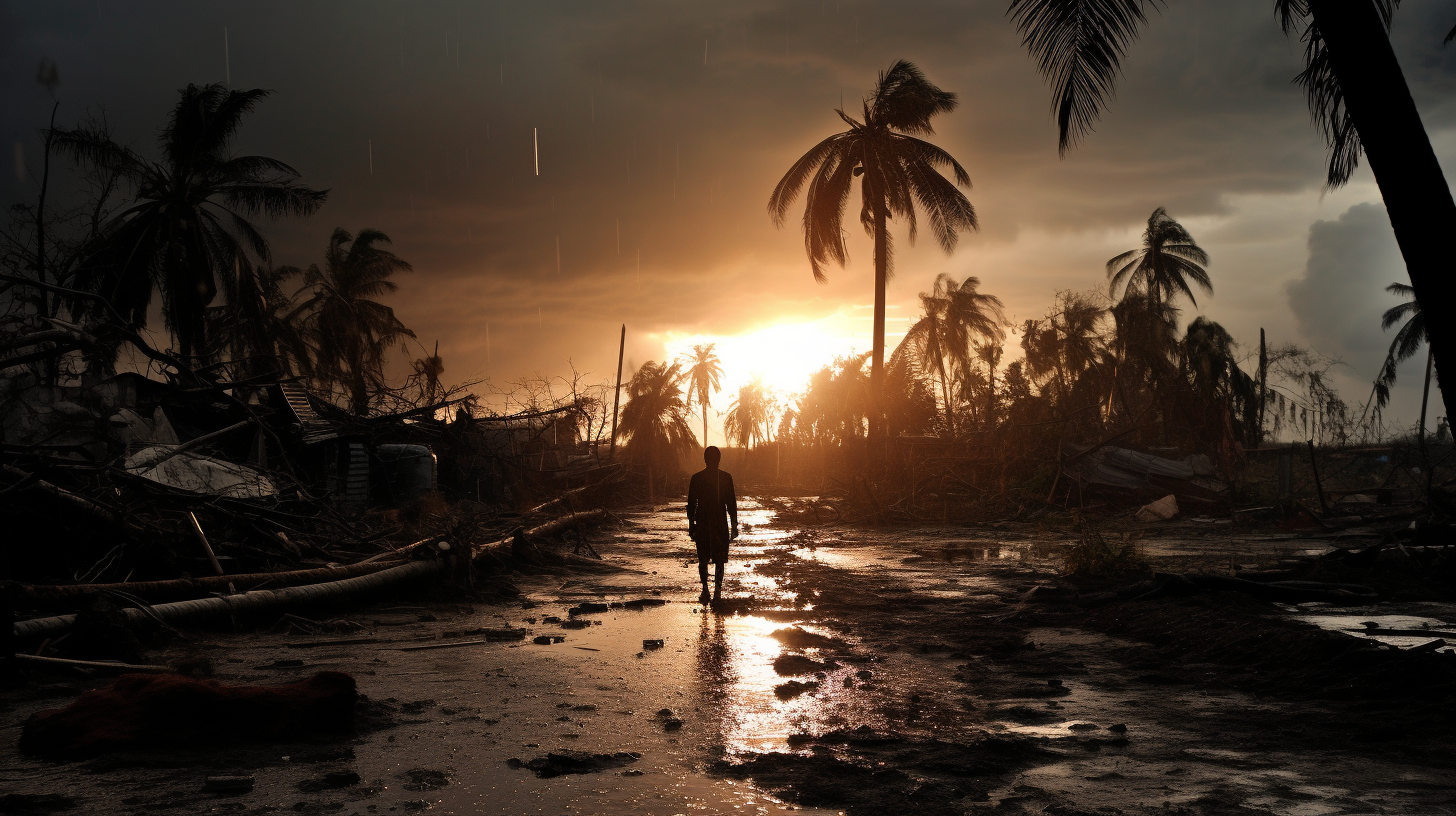The tempest’s howl is indiscriminate, tearing through the homes of the affluent and the shacks of the poor alike. In this relentless pursuit, certain truths become as scattered as the debris in a hurricane’s wake. ‘Echoes in the Storm – Whose Voices Vanish in the Cyclone’s Path’ is an exploration into the unheard, the unseen, and the uncounted. It is a tale of the silenced, their stories obliterated by the ravenous cyclonic beasts born from our own environmental transgressions.
Civilizations stand seemingly stalwart, yet quiver vulnerably at the mere breath of nature’s fury. Recent observations indicate an alarming uptick in cyclonic intensity, a dire testament to our planet’s distress signals. As we stand amidst the wreckage, let us inquire – who speaks for those who have been swallowed whole by the gale?
In quieter times, the disenfranchised echo their grievances through the clamor of societal neglect. Yet, when the cyclones howl, their voices are the first to fade into the void. The marginalized, already teetering on the edge of a precarious existence, find no quarter, no sanctuary from the storm’s embrace. Their homes, cobbled together with hope and necessity, offer no resistance to the might of the tempest.
Beyond the statistics and the storm tracking is a narrative seldom told. After our last contemplation of ‘Winds of Desolation’, where we traversed the sheer scope of our dying world’s silence, we now venture into the sociological abyss that cyclones leave behind – an abyss of lost legacies and submerged identities. Rendering some existences invisible – is this not a climate of injustice as unforgiving as the weather patterns we have sown?
Survivors recount horrors not with their words, but with the haunted vacancy in their eyes. These are people transformed into living memorials of the devastation. Children clutch heirlooms as if they can anchor them to their past, now dissipated as though it were a mere fable. We have grown accustomed to the voices lost in these tragedies, hearing them only as numbers, if at all.
These cyclones are curious beasts – animals of our own inadvertent design. In our pursuit of progress, we have inadvertently fueled their voracious appetites. Yet, amidst our reflections on the environmental havoc, we glance too fleetingly at the societal fabric these storms rend asunder. It is a complex tapestry of heritage, culture, and history, all vulnerable to being wiped clean with a single meteorological stroke.
And what of the relief efforts, one may ask? When the storm calms, rescue teams venture into the maelstrom’s aftermath. Relief flows like a trickle – sometimes abundant, often delayed; a too-late salve on wounds that have festered far beyond their fleshly boundaries. Stories of rescue, of aid, of survival, flicker weakly in the shadowed afterglow of catastrophe.
Yet, the most glaring omission in our chronicle of disaster is the absence of foresight, the deliberate amnesia afflicting our collective consciousness. We rebuild on the same haunted grounds, erecting monuments to our resilience, or is it our defiance? Each footprint in the rebuilding dust is a testament both to human determination and human folly.
As we close this chapter, let us remember, it is not just an ecological disaster we herald, but a societal collapse – the drowning of diverse voices in the noise of devastation. The echoes may carry far, but do they reach the hearts of those yet untouched by the storm’s wrath? Let us question, let us envisage, and let us not forget these lost echoes in the cyclical path of our own destruction.
